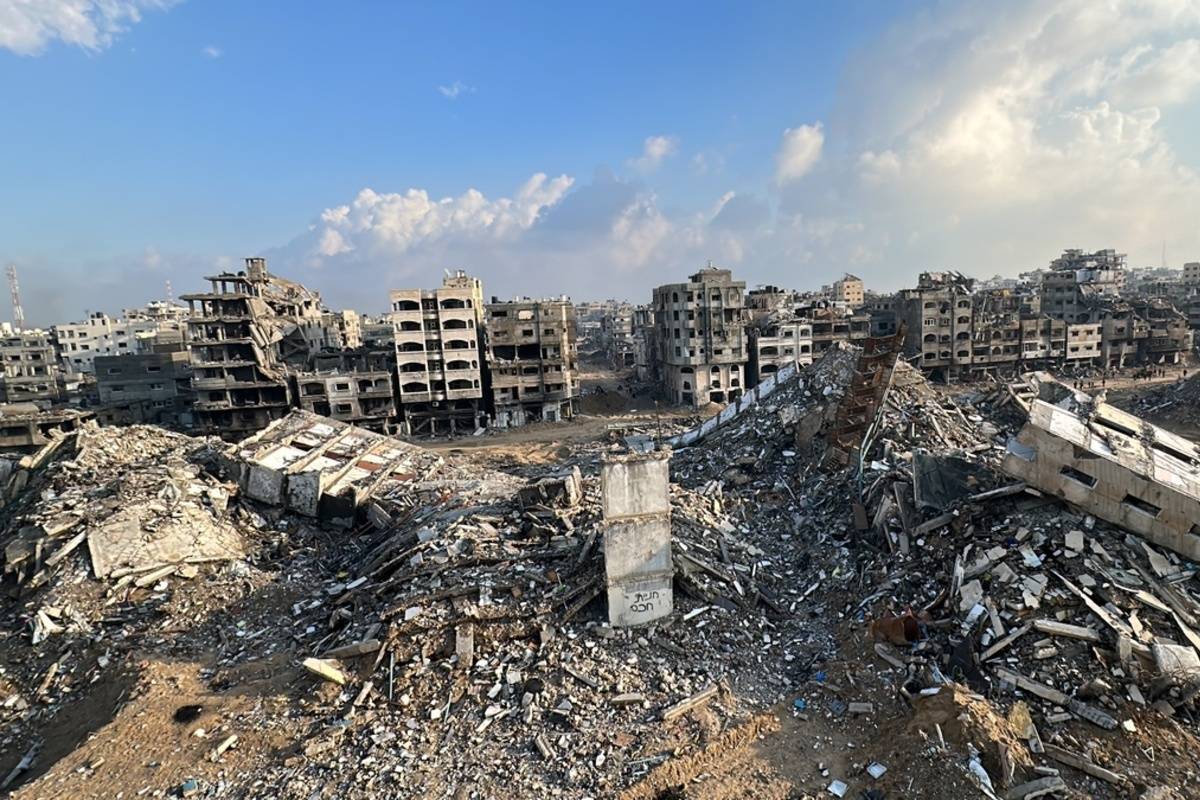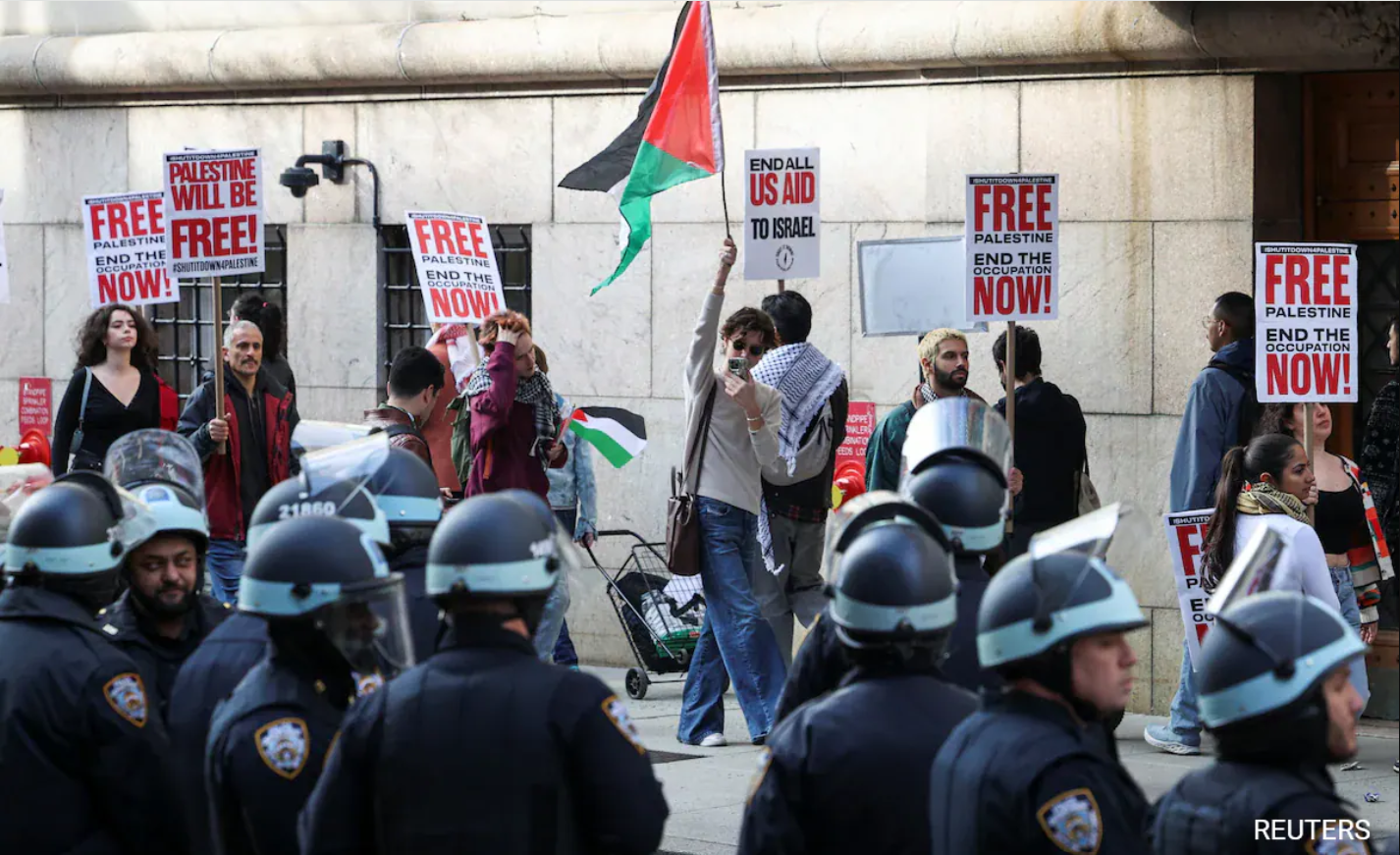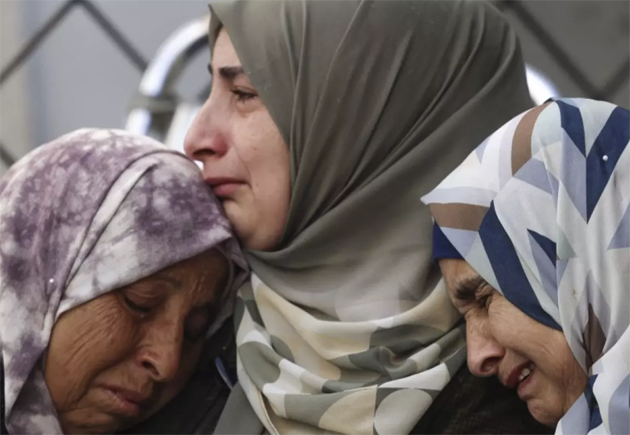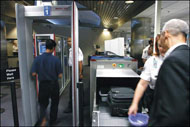
I came to the Holy Land thinking I could find some type of middle ground and lodge myself there. As a Palestinian-American, I am equipped with the knowledge, cultural awareness and communication skills to show a Western audience the unvarnished truth behind the conflict. I try not to get emotionally involved with the political issues and "stay above" the fray. As a trained journalist, that is what I was taught.
Yet I recently watched a Palestinian friend get into a political discussion with an Israeli security guard on the way to the dorms at Hebrew University in Jerusalem. My friend is a fiery artist from the north with Israeli citizenship, and the guard, an imposing Sephardic Jew of Moroccan descent.
It heated up quickly, when the guard asked her if she calls herself Palestinian or Israeli. Something as simple as a person's self-identity can be seen as an act of defiance when the overarching system is built to replace one national identity with another. He attacked the very premise that there is such a thing as a Palestinian nation saying that this came as a response to Zionism and Jewish immigration. "Without us here, you would be Jordanians."
They discussed the gamut of historical flashpoints with each side taking completely opposite conclusions from each event: the British occupation (helped Jews colonize Palestine; kept Jewish immigration at a trickle), the 1948 war (well armed European Jews ethnically cleansed Palestine; five Arab armies attacked an infant Israeli state), Deir Yassin (a massacre; a hoax), Yasser Arafat (a national symbol of resistance; the greatest terrorist ever), the separation wall (a land grab; necessary to stop terrorists), failure of the peace process (Israelis sabotage the negotiations; Palestinians never fail to miss an opportunity).
The two distinct narratives here are diametrically opposed in every case, and for each event both sides have a self-serving interpretation. These interpretations are internalized and have become the personal and national narratives that form the basis of all assumptions when discussing the conflict.
Whatever overlap there has been in the two perspectives is diminishing every day as each side watches the other retreat further into cynicism and suspicion which leads to even further retreat. A Hebrew University poll conducted at the beginning of the month show just six percent of Palestinians and five percent of Israelis believe there is a high chance the talks will succeed. The same poll also found 54 percent of Israelis fear being injured by Arabs in their daily lives while 76 percent of Palestinians have the same fear of Israelis.
Almost daily, news comes of more racist and anti-democratic initiatives coming out of the Knesset and the response from the public varies between muted anxiety and complete ambivalence. Among Palestinians, there is a feeling of disparity and hopelessness. They are just watching and waiting for the next bout of violence to break out so they can try to duck out of the way before getting caught in the crossfire.
I’ve noticed a complete disillusionment from people on the street, as if both sides have stopped caring what their leaders are doing and just focus on their daily lives. How long can that mentality last in this period of "relative calm" when a handful of Palestinians are killed every week, a plot of land confiscated here, an olive orchard burned there? Since the end of the housing “freeze”, settlement construction has raced at a pace four times faster than in recent years. Once there is a big-enough perceived threat to the status quo, the powers-that-be will find a way to provoke another batch of ever more destructive violence.
Of course not all have resigned themselves to this never-ending cycle. Peace activists, Palestinian and Israeli, are active as ever hosting events, leading demonstrations, going to court, and generally blunting the effects of the racist system people face daily. Yet others fight to uphold the system they see as their birthright to protect, by burning olive orchards, rallying for the assassinated ultra-nationalist Meir Kahane, and requiring loyalty oaths for non-Jews.
Essentially I feel less and less like an impartial stance on the conflict is possible. As the gulf between the sides widens, anyone who tries to split the difference and take a middle road will be labeled a threat to the state's legitimacy by Israelis and a Zionist sympathizer by Palestinians.
Most come into this with a clearly chosen side based on their heritage and loyalties, yet I cannot help but think that there is a more objective way of viewing the conflict on a fundamental level. If things are ever going to change, it will require us to reframe the discussion in a way that everyone can understand and identify with. We must apply universal values of equality and justice without getting sucked into the same back and forth between the narratives.
In the end, when the current situation in Palestine and Israel boils down to its basic context, there is a system in place that methodically works to build up one group and subjugate another. Its mechanisms are sophisticatedly concealed under a veneer of legitimacy from a beneficiary public that is content to move forward with eyes closed to the daily injustices committed in their name. These injustices enfeeble the victims’ ability to move forward and build themselves up. It is a system based on racial lines, and it is a formula antithetical to common morality which has been proven time and again in similar schemes to be unsustainable.
Michael Khaled is a Writer for the Media and Information Department at the Palestinian Initiative for the Promotion of Global Dialogue and Democracy (MIFTAH). He can be contacted at mid@miftah.org.









